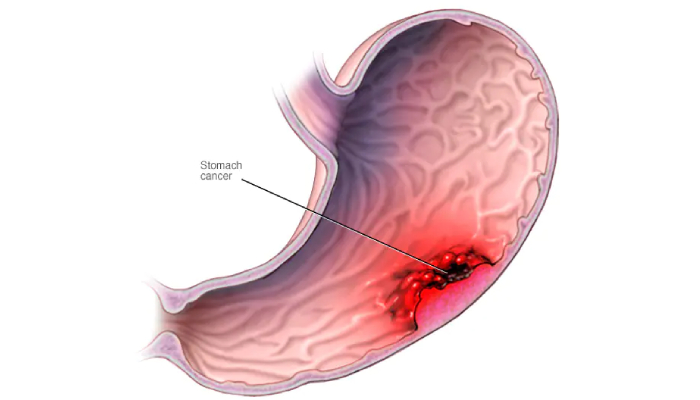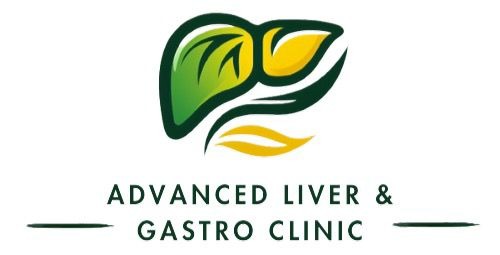Stomach Surgery – When Is It Needed?
Stomach surgery is performed when non-invasive treatment options fail to provide relief or when a serious medical condition requires surgical intervention. Conditions such as stomach acid disease (GERD), gastroparesis, dysphagia, and stomach cancer may necessitate surgical treatment.
For stomach cancer, surgery is a standard approach, involving the removal of part or all of the stomach, along with nearby lymph nodes and affected structures. The goal is to eliminate the disease while preserving as much normal stomach function as possible. In some cases, other organs may also need to be removed if the cancer has spread.
If you have persistent digestive issues, difficulty swallowing, severe acid reflux, or symptoms of stomach cancer, consult Dr. Ujwal Zambare, best Gastroenterologist & Stomach Surgeon in Wakad, Pune, for expert evaluation and surgical treatment.
What Is Stomach Cancer?
Stomach cancer is the formation of cancerous cells in the stomach lining. Stomach cancer is also known as gastric cancer. The condition may occur at any part of the stomach. Patients with stomach cancer experience indigestion and pain in the stomach. Although the sixth most common cancer all over the world, it is third in claiming lives due to cancer.
Stomach cancer is an abnormal growth of cells that begins in the stomach. The stomach is a muscular sac located in the upper middle of your abdomen, just below your ribs. Your stomach receives and holds the food you eat and then helps to break down and digest it.


What are the causes of Stomach Cancer?
The main cause of stomach cancer is a genetic mutation (change) in the cells of the stomach, which causes the cells to grow rapidly and eventually form a tumor. Risk factors that can increase a person’s chance of getting stomach cancer include:
- Family history
- Smoking
- Obesity
- Infection from Helicobacter pylori (H. pylori) bacteria
- A diet high in salt
- A diet that does not include many fruits and vegetables.
Risk Factors
Factors that increase the risk of stomach cancer include:
- Gastroesophageal reflux disease
- Obesity
- A diet high in salty and smoked foods
- A diet low in fruits and vegetables
- Family history of stomach cancer
- Infection with Helicobacter pylori
- Long-term stomach inflammation (gastritis)
- Smoking
- Stomach polyps.
What Are The Symptoms of Stomach Cancer?
- Nausea and vomiting
- Difficulty swallowing
- Heartburn
- Loss of appetite
- Weight loss
- Feeling tired
- Bloating
- Vomiting blood (in advanced stages)
What Are The Treatment Options For Stomach Cancer?
Stomach cancer can be managed through medications, radiotherapy, and surgery. The treatment strategy is based on the stage and severity of the disease. Medications include chemotherapy, targeted medications, and immunotherapy. Surgical options for stomach cancer include Subtotal gastrectomy in which a portion of the stomach is removed, Total gastrectomy, and Endoscopic mucosal resection. Now a day’s these surgeries can be done through laparoscopic methods (Key Hole surgery) also.
Any treatment, including chemotherapy or radiation therapy, is considered palliative therapy. Surgery is rarely used, and the main treatment is usually chemotherapy. It is important to note that studies show that the use of palliative chemotherapy for stomach cancer can improve both the length and quality of life.
Prevention
- Maintain a healthy weight. If you’re overweight or obese, talk to your doctor about strategies to help you lose weight. Aim for a slow and steady weight loss of 1 or 2 pounds a week.
- Choose a diet full of fruits and vegetables. Try to incorporate more fruits and vegetables into your diet each day. Choose a wide variety of colorful fruits and vegetables.
- Reduce the amount of salty and smoked foods you eat. Protect your stomach by limiting these foods.
- Stop smoking. If you smoke, quit. If you don’t smoke, don’t start. Smoking increases your risk of stomach cancer, as well as many other types of cancer. Quitting smoking can be very difficult, so ask your doctor for help.
If you’re experiencing persistent digestive issues or require expert surgical care for stomach conditions, consult Dr. Ujwal Zambare, a highly experienced GI Surgeon in Wakad, Pune. He specializes in advanced stomach surgery, ensuring precise diagnosis and effective treatment for conditions like stomach cancer, GERD, gastroparesis, and dysphagia.📞 For consultations and appointments, call: 098159 94279
